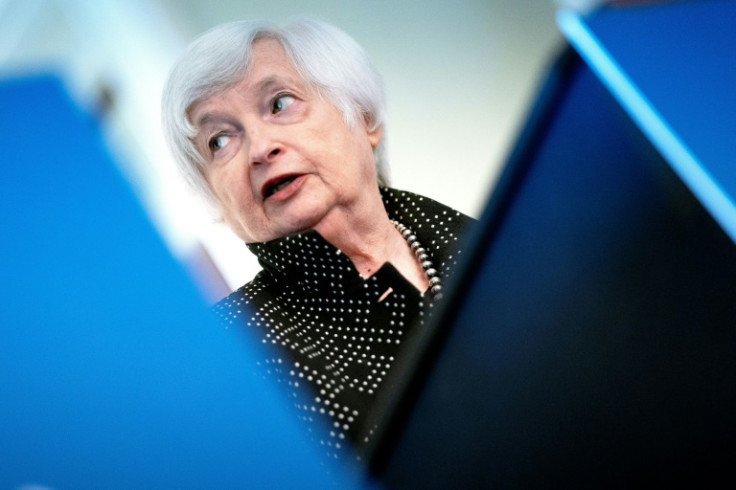US Seeks 'Constructive And Fair' Economic Ties With China: Yellen

The United States seeks a "constructive and fair economic relationship" with China, even as Washington holds firm in defending the country's national security, Treasury Secretary Janet Yellen said Thursday.
Her speech, delivered at Johns Hopkins University, comes as tensions remain elevated between the world's two biggest economies.
China's new Foreign Minister Qin Gang last month accused Washington of stoking tensions between both powers, warning of "conflict and confrontation."
But Yellen said Thursday that the United States remains firm in its conviction to defend its values and national security.
"Within that context, we seek a constructive and fair economic relationship with China," she added.
She also raised the need for both countries to be able to "frankly discuss difficult issues" and work together when possible.
Stressing that "healthy economic competition" is only sustainable with fairness, she said: "We will continue to partner with our allies to respond to China's unfair economic practices."
Yellen noted that China has expanded support for its state-owned enterprises and domestic private firms, to "dominate foreign competitors."
Meanwhile, even as some of America's national security actions may have economic impacts, Yellen maintained that the moves are "motivated solely by our concerns about our security and values."
The US administration is considering a program to restrict certain US outbound investments involving specific sensitive technology with significant national security implications.
But Yellen added: "Our goal is not to use these tools to gain competitive economic advantage."
She also pushed back on the notion that US national security actions are aimed at stifling China's economic and technological modernization, and said America does not "seek to decouple" its economy from China's.
Chinese President Xi Jinping previously slammed the United States for leading an effort to contain and suppress China.
Beijing's technology ambitions have been hit with restrictions by the United States and its allies, and Chinese authorities have doubled down on the need to move away from imports for sectors seen as key to national security, such as semiconductors.
Yellen also said Thursday that China's "no-limits partnership" and support for Russia is a "worrisome indication that it is not serious about ending the war," referring to conflict in Ukraine.
She stressed that it is essential that China and others do not provide Russia with material support or assistance with sanctions evasion, warning of severe consequences.
Despite both parties' disagreements, Yellen stressed Wednesday the need to cooperate on urgent global challenges.
Washington and Beijing have clashed in recent years over trade, human rights and other issues, and relations soured even more this year when the United States shot down a Chinese balloon it said was used for surveillance -- a claim China strongly denied.
While both countries have agreed to boost communication on macroeconomic issues, along with cooperation on climate and debt distress, Yellen said "more needs to be done."
"We call on China to follow through on its promise to work with us on these issues -- not as a favor to us, but out of our joint duty and obligation to the world," she added.
Saying she plans to travel to China at the appropriate time, Yellen added that she hopes to engage in "substantive dialogue" with her new counterpart and that this can help "lay the groundwork for responsibly managing our bilateral relationship."
On recent banking sector turmoil, Yellen said the United States will take any necessary steps to ensure the country continues to have strongest and safest financial system in the world.
© Copyright AFP 2024. All rights reserved.




















